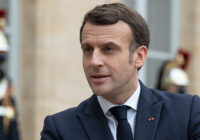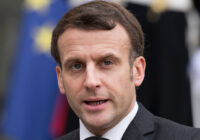Leaks are actually a fundamental step in the right direction toward a more democratic system.
Russia very likely interfered in the 2016 US presidential election and, more recently, in the 2017 French presidential election. This occurred primarily through the leaking of internal emails and messages related to campaign activities of particular candidates. Although the extent of the Kremlin’s involvement and the true effect of the leaks on the election results remain unclear, many have seen these hacks as an affront against true democracy.
The hacks themselves, however, should not be treated as a threat, but rather as an intention to give advantage to one candidate over another. A more transparent electoral process creates more informed voters and deters corruption in political institutions, and the Russian leaks have actually achieved this. While the current one-sidedness of the hacks may potentially undermine the fair nature of our elections, they are fundamental step in the right direction toward a more democratic system.
The Hillary Clinton campaign suffered through numerous disclosures of internal emails in 2016, the two most infamous being the Democratic National Committee (DNC) leaks (Guccifer 2.0) and Campaign Chairman John Podesta’s emails. Their content quickly became public knowledge and sparked an array of criticism against the former secretary of state, such as the questionable practices of the Clinton Global Initiative.
This phenomenon was mirrored in the French presidential election in early May, when tens of thousands of En Marche! emails were released online, detailing the inner workings of Emmanuel Macron’s team. This leak differed dramatically from Clinton’s in that nothing truly damning was revealed, allowing Macron to enjoy a relatively confident journey to victory. These leaks are both widely believed to be the product of Russian influence, a claim that has become increasingly supported by the intelligence community.
But voters have benefited from the leaks, and this should not be overlooked. Regardless of the biased political objectives that inspired the hackings, voters became more informed as a result. In addition to the Clinton Global Initiative revelations, Americans learned about potential collusion within the DNC to deride Senator Bernie Sanders’ campaign. In France, the notion that Macron had little to hide was further reinforced by the relatively uncontroversial nature of his emails, which arguably helped him perform better than the polls predicted on election day.
Openness and transparency are cornerstones of any well-functioning democracy. They allow the public to make better-educated decisions and to hold their leaders accountable for corruption and wrongdoings. The Russian hacks created more transparency in the elections in the United States and France — a welcome development for both democracies.
Can an election be described as free and fair when such leaks take place? Many would outright argue no. They claim politically motivated hacking undermines the democratic quality of the voting process. In some ways, they are correct. A foreign entity using its cyber resources to influence the outcome of an election is problematic, and when it targets one candidate disproportionately, it certainly reduces the fairness of the election. Less equality between candidates does not necessarily render an election less democratic. Nevertheless, when this inequality stems from dubious outside manipulation and selectively exposed truth, electoral integrity is compromised in some capacity.
For some people this might not feel right, and that is understandable. The uncertainty that comes along with foreign influence may lead some to desire a return to a world where candidates’ unsavory dealings remain relatively safe behind closed doors, barring a few occasional whistleblower cases. This might feel more secure and more democratic than what occurred in 2016 and 2017, but achieving progress sometimes requires taking uncomfortable intermediary steps. The targeted leaks admittedly represent a movement away from traditional democracy, but they also constitute a transition toward a newer, more transparent form of elective government.
Conversely, telling the American voters to disregard what they knew about the financial dealings of the Clinton Global Initiative merely because a foreign adversary provided them with such information would be retrograde to the spirit of democracy. The limitations of transparency should not be determined and regulated by government, regardless of the perceived “threat” of bias coming from an outside force. Naturally, politicians should be uniformly subject to the impact of open and disclosed information, even if this is not currently the case, but this is cause for increased exposure of political dealings instead of curtailing it. While Russia was the predominant force behind the leaks in these elections, a growing number of individuals and groups from a diverse array of political orientations can be expected to follow suit in coming years.
The leaks against Clinton and Macron, as well as the CIA hacks against Donald Trump in March and the release of information on Marine Le Pen’s offshore machinations last year, demonstrate that no candidate is entirely immune from leaks and hacks. Known as the “declining half-life of secrets,” information is simply becoming harder to hide. Russia’s election hacking is ultimately, and inadvertently, part of a larger movement toward more openness and more accountability for our leaders that should not be ignored at the expense of nationalism-inspired fear. When an election occurs with secrets, one candidate wins. But, when an election is run on open information, the voters win. The voters did not entirely win the French and American elections, but they certainly came closer than ever before.
*[Young Professionals in Foreign Policy is a partner institution of Fair Observer.]
The views expressed in this article are the author’s own and do not necessarily reflect Fair Observer’s editorial policy.
Photo Credit: HYWARDS
Support Fair Observer
We rely on your support for our independence, diversity and quality.
For more than 10 years, Fair Observer has been free, fair and independent. No billionaire owns us, no advertisers control us. We are a reader-supported nonprofit. Unlike many other publications, we keep our content free for readers regardless of where they live or whether they can afford to pay. We have no paywalls and no ads.
In the post-truth era of fake news, echo chambers and filter bubbles, we publish a plurality of perspectives from around the world. Anyone can publish with us, but everyone goes through a rigorous editorial process. So, you get fact-checked, well-reasoned content instead of noise.
We publish 3,000+ voices from 90+ countries. We also conduct education and training programs
on subjects ranging from digital media and journalism to writing and critical thinking. This
doesn’t come cheap. Servers, editors, trainers and web developers cost
money.
Please consider supporting us on a regular basis as a recurring donor or a
sustaining member.
Will you support FO’s journalism?
We rely on your support for our independence, diversity and quality.








Commenting Guidelines
Please read our commenting guidelines before commenting.
1. Be Respectful: Please be polite to the author. Avoid hostility. The whole point of Fair Observer is openness to different perspectives from perspectives from around the world.
2. Comment Thoughtfully: Please be relevant and constructive. We do not allow personal attacks, disinformation or trolling. We will remove hate speech or incitement.
3. Contribute Usefully: Add something of value — a point of view, an argument, a personal experience or a relevant link if you are citing statistics and key facts.
Please agree to the guidelines before proceeding.